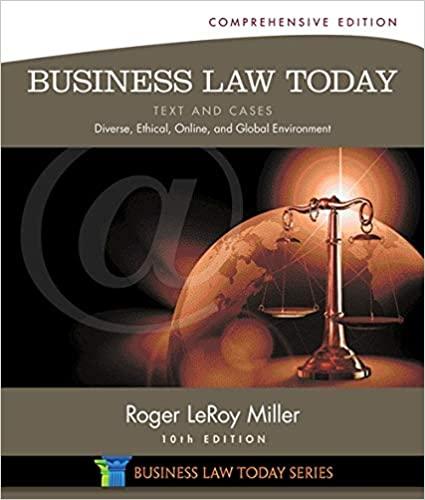Every year, Michael Manin, an airline pilot and flight instructor, had to renew his firstclass airman medical
Question:
Every year, Michael Manin, an airline pilot and flight instructor, had to renew his firstclass airman medical certificate, which showed that he had met medical standards for aircraft operation. The application for renewal included questions regarding criminal history, including non-traffic misdemeanors. Manin had been convicted of disorderly conduct, a minor misdemeanor, in 1995 and again in 1997, but never disclosed these convictions on his yearly applications. The Federal Aviation Administration (FAA) discovered the two convictions in 2007 and issued an emergency order to revoke Manin’s flight certificates in 2008. Manin filed an answer to this revocation order, as well as an administrative complaint. He claimed that he had not known he was required to report a conviction for a minor misdemeanor and also asserted that the complaint was stale (legally expired) under National Transportation Safety Board (NTSB) regulations. At the hearing on Manin’s complaint, the administrative law judge affirmed the emergency revocation order. Manin appealed to the full NTSB, which also affirmed. Manin then appealed to a federal appellate court, claiming that the NTSB had departed from its precedent in prior cases without explanation. The FAA conceded that the NTSB’s statement of the rules pertaining to staleness was inaccurate, but it urged the court to affirm anyway. How should the court rule? Does an agency’s departure from precedent without explanation mean that its decision was arbitrary and capricious? Explain. [Manin v. National Transportation Safety Board, 627 F.3d 1239 (D.C.Cir. 2011)]
Step by Step Answer:

Business Law Today Comprehensive Text And Cases Diverse Ethical Online And Global Environment
ISBN: 9781285428932
10th Edition
Authors: Roger LeRoy Miller





